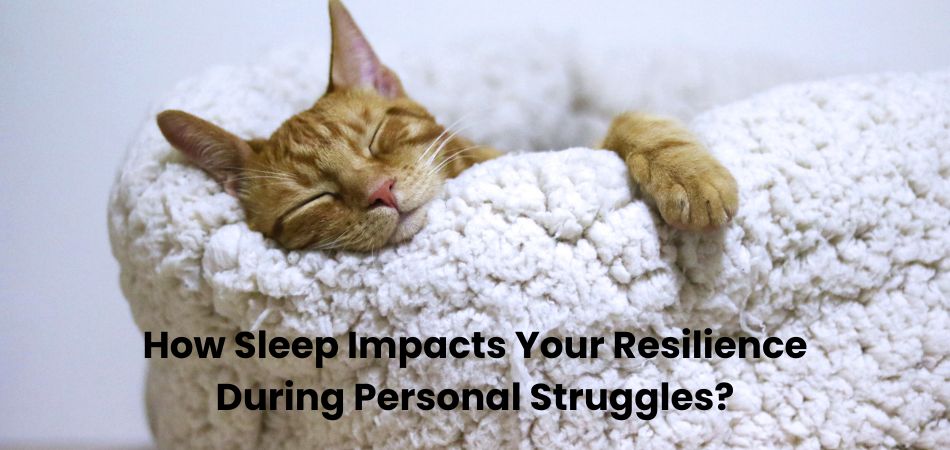Life is full of ups and downs, and personal challenges can often feel overwhelming. During difficult times, it’s easy to neglect both physical health and mental well-being.
However, maintaining a balanced lifestyle is crucial for resilience and recovery. Learning how to stay healthy and positive in personal challenges can empower you to climb over obstacles with strength and optimism.
To stay healthy and positive in personal challenges, focus on balanced nutrition, regular exercise, quality sleep, mindfulness practices, and building a strong support system to maintain physical strength and emotional resilience.
Are you ready to explore practical strategies for improving your health and outlook? Keep reading to learn actionable tips that will help you grow, even in the face of adversity!
How to Stay Healthy and Positive in Personal Challenges: Tips for Body, Mind, and Spirit
Solving personal challenges can take a toll on your physical health, mental clarity, and emotional resilience. Balancing these aspects of well-being is essential for staying strong and positive during tough times. Here are practical tips to support your body, mind, and spirit when life feels overwhelming.

Nourish Your Body with Balanced Nutrition
Eating a well-balanced diet is vital for maintaining energy and resilience. Focus on whole foods like fruits, vegetables, lean proteins, and whole grains to fuel your body. Stay hydrated throughout the day to keep your body functioning optimally. Reducing processed foods and sugar can also help stabilize your mood and energy levels.
Stay Active with Regular Exercise
Physical activity is a powerful stress reliever and mood booster. Aim for at least 30 minutes of moderate exercise most days, whether it’s walking, yoga, or dancing. Exercise releases endorphins, which naturally improve your mood and reduce anxiety. Find enjoyable ways to stay active to make movement a consistent part of your routine.
Practice Mindfulness and Meditation
Mindfulness and meditation can help you stay grounded and manage stress more effectively. Set aside a few minutes each day to breathe deeply and focus on the present moment. Meditation can reduce negative thinking and promote emotional balance. Apps and guided sessions can support beginners in building this healthy habit.
Prioritize Quality Sleep
Good sleep is essential for physical recovery and emotional resilience. Aim for 7–9 hours of restful sleep each night by maintaining a consistent sleep schedule. Create a calming bedtime routine to signal your body it’s time to rest. Limiting screen time before bed can improve sleep quality and mental clarity.
Build a Strong Support System
Connecting with supportive friends and family can provide comfort and perspective. Don’t hesitate to share your feelings and lean on loved ones during hard times. Engaging in positive social interactions can reduce feelings of isolation. Consider joining support groups or talking to a counselor if you need additional help.
Engage in Positive Self-Talk
Your inner dialogue significantly impacts how you handle stress and challenges. Replace self-criticism with encouraging and empowering thoughts. Remind yourself of past successes and strengths when facing difficulties. Practicing affirmations can build confidence and encourage a more optimistic mindset.
Consider Activities That Bring Joy and Relaxation
Taking time for hobbies and activities you love can rejuvenate your spirit. Whether it’s reading, painting, gardening, or listening to music, these moments of joy are essential. They allow you to disconnect from stress and reconnect with your passions. Prioritizing joy helps maintain emotional balance and overall well-being.
Why Is It Important to Prioritize Health During Tough Times?
During difficult times, it’s easy to overlook your health while focusing on immediate problems. However, neglecting your well-being can make challenges even harder to manage. Prioritizing your health equips you with the strength and resilience needed to face adversity more effectively.

Strengthens Your Immune System
Stressful situations can weaken your immune system, making you more vulnerable to illness. Prioritizing nutrition, rest, and exercise helps keep your body strong and resilient. A healthy immune system allows you to better withstand both physical and emotional challenges.
Improves Mental Clarity and Decision-Making
When you care for your health, your mind stays sharp and focused. Good mental clarity is essential for making sound decisions, especially during stressful periods. Clear thinking helps you solve problems more effectively and reduces impulsive reactions.
Reduces the Risk of Burnout
Constant stress without self-care can quickly lead to burnout. Prioritizing your health ensures you recharge physically and emotionally. This balance prevents exhaustion and allows you to handle challenges with greater patience and endurance.
Supports Emotional Resilience
A healthy body contributes to emotional stability. Regular self-care strengthens your ability to manage emotions and stay calm under pressure. Emotional resilience helps you recover faster from setbacks and adapt to difficult situations.
Encourages Long-Term Well-Being
Focusing on your health during tough times builds lifelong habits that benefit you beyond the immediate challenge. Consistent self-care promotes lasting physical and mental wellness. This foundation prepares you to face future obstacles with greater confidence and strength.
Ways to Stay Physically Active When Life Gets Overwhelming
When life feels chaotic, physical activity is often the first thing to be neglected. However, staying active can help release built-up stress and boost your energy. Incorporating movement into your day doesn’t have to be complicated—small, consistent efforts make a big difference.
Incorporate Movement into Daily Tasks
Turn everyday activities into opportunities for physical movement. Take the stairs instead of the elevator, park farther from entrances, or do light stretches while watching TV. These small changes can add up to increased activity without needing extra time. Simple adjustments help you stay active even with a packed schedule.
Try Short, High-Intensity Workouts
If time is limited, high-intensity interval training (HIIT) can be effective. Just 10–15 minutes of intense activity can improve fitness and boost mood. Exercises like jumping jacks, squats, and push-ups require no equipment and can be done anywhere. This approach saves time while keeping your body engaged.
Engage in Active Hobbies
Pursue hobbies that naturally involve movement, such as gardening, dancing, or hiking. These enjoyable activities offer a break from stress while keeping you physically active. Finding joy in movement makes it easier to stay consistent. Active hobbies blend relaxation with exercise, providing mental and physical benefits.
Use Technology to Stay Accountable
Fitness apps and wearable devices can motivate you to move more. Set daily step goals or use virtual workout classes to stay engaged. Tracking progress can make physical activity feel rewarding and manageable. Technology offers convenient ways to stay accountable and consistent with your fitness goals.
Build a Strong Support System During Difficult Moments
Facing challenges alone can intensify feelings of stress and isolation. A strong support system provides comfort, guidance, and motivation during tough times. Surrounding yourself with the right people can make navigating hardships more manageable and less overwhelming.
- Identify Trusted Individuals: Recognize friends, family members, or mentors who offer genuine support. Lean on people who listen without judgment and provide thoughtful advice.
- Communicate Your Needs Clearly: Openly express how others can support you, whether emotionally or practically. Clear communication prevents misunderstandings and ensures you receive the help you need.
- Join Supportive Communities: Participate in local or online groups with shared interests or experiences. Being part of a community increases belonging and reduces feelings of loneliness.
- Offer Support in Return: Support is a two-way street—be there for others when they face challenges. Mutual encouragement strengthens relationships and builds trust.
- Limit Contact with Negative Influences: Distance yourself from people who drain your energy or add stress. Protecting your emotional well-being helps you focus on positive connections.
- Seek Professional Guidance if Needed: Don’t hesitate to consult a counselor or therapist for additional support. Professional guidance can provide valuable coping strategies during difficult times.
How Sleep Impacts Your Resilience During Personal Struggles?
Quality sleep is essential for building resilience, especially during personal struggles. When you’re well-rested, your brain can better process emotions and manage stress. Sleep allows the mind to reset, improving focus, problem-solving skills, and emotional regulation, all of which are critical for navigating challenges.

Lack of sleep can heighten feelings of anxiety, irritability, and emotional exhaustion. Chronic sleep deprivation weakens your ability to cope with setbacks, making everyday problems feel more overwhelming. Poor rest also impairs cognitive function, leading to poor decision-making and reduced mental clarity.
Prioritizing restful sleep strengthens both your mind and body, allowing you to approach obstacles with greater patience and resilience. Establishing a consistent sleep schedule and creating a calming bedtime routine can enhance sleep quality. By getting enough rest, you equip yourself to handle life’s difficulties with more energy and emotional balance.
Tips for Managing Anxiety and Negative Thoughts Effectively
Anxiety and negative thoughts can quickly spiral, making it difficult to stay calm and focused. Learning to manage these emotions is key to maintaining mental clarity and emotional balance. Here are practical strategies to help you take control of your thoughts and reduce anxiety.
- Challenge Negative Thinking: Question the truth behind your negative thoughts and replace them with more realistic perspectives. This practice helps break the cycle of automatic, unhelpful thinking.
- Practice Deep Breathing Techniques: Slow, deep breathing can calm your nervous system and reduce feelings of anxiety. Focusing on your breath helps redirect attention away from stressful thoughts.
- Limit Exposure to Stress Triggers: Identify and reduce time spent on activities or situations that increase anxiety, such as excessive news consumption or toxic environments. Setting boundaries protects your mental space.
- Engage in Grounding Exercises: Grounding techniques, like focusing on physical sensations or naming objects around you, can pull you out of anxious thought loops. These simple practices bring your focus back to the present moment.
- Stay Physically Active: Regular movement releases tension and reduces stress hormones. Even light exercise, like stretching or walking, can positively shift your mood.
- Set Small, Achievable Goals: Break overwhelming tasks into smaller steps to regain a sense of control. Celebrating small wins builds confidence and reduces feelings of helplessness.
FAQs on Staying Healthy and Positive During Personal Challenges
Facing personal challenges can leave many people searching for ways to maintain their health and positivity. It’s normal to have questions about how to balance physical, mental, and emotional well-being during difficult times. Here are some frequently asked questions with practical answers to guide you through tough moments.
1. How Can I Stay Motivated When I Feel Overwhelmed?
Start by setting small, manageable goals that are easy to achieve. Celebrating small wins can create momentum and boost motivation. Focus on progress, not perfection, to keep moving forward.
2. What Are Simple Ways to Manage Daily Stress?
Incorporate quick stress-relief activities like deep breathing, stretching, or stepping outside for fresh air. These small actions can quickly calm your mind and reduce tension. Consistent practice of these habits helps prevent stress from building up.
3. How Do I Balance Personal Responsibilities During Tough Times?
Prioritize tasks by importance and delegate when possible. Using a planner or to-do list can help organize responsibilities and ease mental overload. Give yourself permission to focus on what truly matters.
4. Can Creative Activities Help Me Feel Better?
Yes, engaging in creative outlets like drawing, writing, or crafting can reduce stress and improve mood. Creative activities offer a positive distraction and help process emotions. They provide a sense of accomplishment and joy.
5. How Important is Social Connection When Facing Challenges?
Staying connected with supportive friends and family can significantly improve emotional well-being. Sharing your feelings with trusted people reduces isolation and provides comfort. Positive social interactions can uplift your mood and offer new perspectives.
Final Words
Overcoming difficult times requires intentional care for both your physical and mental well-being. Knowing how to stay healthy and positive in personal challenges empowers you to combat adversity with strength and resilience. By adopting small, consistent habits like managing stress, staying active, and developing supportive relationships, you can build a stronger foundation for personal growth.
Prioritizing self-care not only helps you manage current struggles but also prepares you to handle future challenges with greater confidence. Remember, even in the most overwhelming moments, taking proactive steps toward your health and positivity can lead to lasting emotional and physical well-being.
